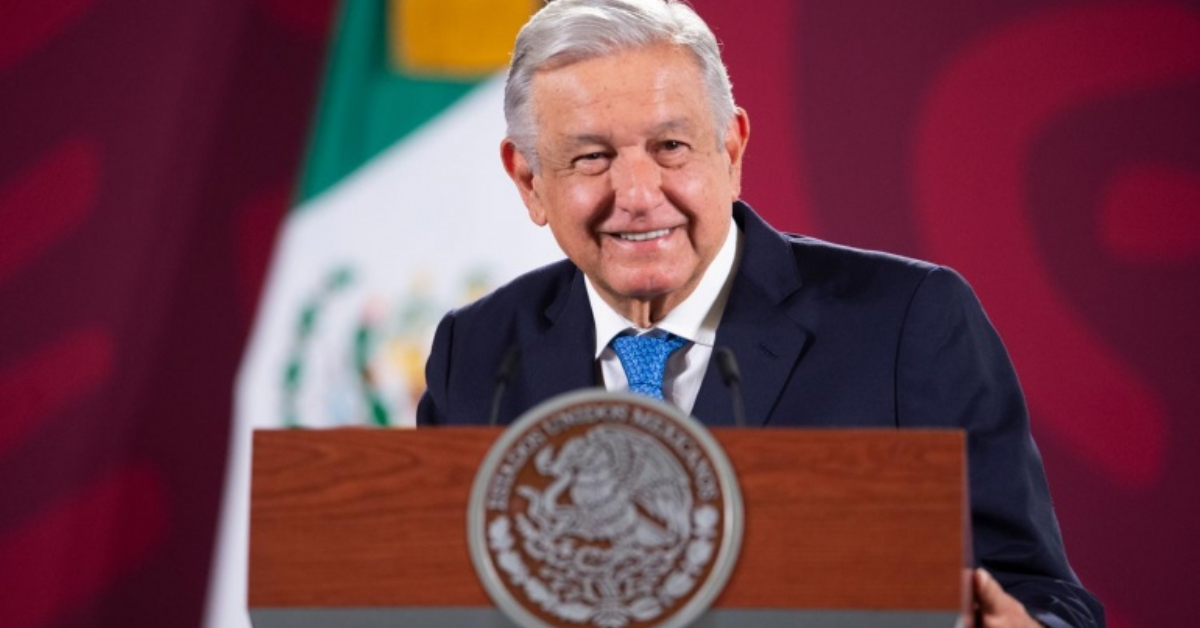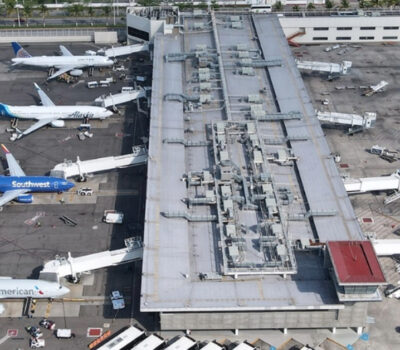On September 16, in his speech for the anniversary of Mexican Independence, President Andrés Manuel López Obrador announced a peace plan for Russia and Ukraine. The proposal, he said, responds to the paralysis of the United Nations Organization (UN), which “remains inactive and as if erased,” and proposed creating “a committee for dialogue and peace” that seeks “immediately the cessation of hostilities in Ukraine and the start of direct talks with President Volodymyr Zelensky of Ukraine and Vladimir Putin of Russia.”
In addition, the committee would seek “a multinational agreement to reach a truce of at least five years (…) that implies the immediate suspension of military actions and provocations.” The plan began to fail the very day of its announcement. Myjailo Podolyak, an adviser to Zelensky’s chief of staff, called López Obrador’s proposal a “Russian plan” while criticizing “peacemakers who use war as a tool for their public relations agenda”.
Two days later, López Obrador attacked those who criticized his initiative. “They are sectarian or are in favor of one of the parties, because what they did was distort the meaning of the proposal that is to seek peace and they put me on the side of Russia,” he said, later recounting how on previous occasions he has been criticized for supposedly defending Russian interests: “I have already suffered that in other times.”
As almost always happens with López Obrador, the underlying issue was quickly relegated to the background, to place what really matters to him first: himself. As the Ukrainian advisor rightly pointed out, the war and the presumed search for an ethereal peace are here nothing more than tools on the president’s public relations agenda. An agenda based mainly on confrontation and victimization. They, who dare to criticize him, “are sectarian.” And, poor him, he has already “suffered” this before.
The content of López Obrador’s plan is actually so irrelevant that five days after his speech, when Foreign Minister Marcelo Ebrard traveled to New York to present it to the UN, the Ministry of Foreign Affairs told the magazine Proceso that the initiative was still being fine-tuned.
When Ebrard stood before the Security Council and the General Assembly, the proposal had already lost one of its two legs. He spoke of a “caucus for dialogue and peace in Ukraine,” but never mentioned the “at least five-year truce” that the president had announced days earlier.
There was so much talk that, days later, the Colombian president, Gustavo Petro, joined the initiative. During the forum “Latin America, the United States and Spain in the global economy”, held in New York, Petro embraced López Obrador’s speech, avoided mentioning Russia as an aggressor, and announced that he was preparing together with Mexico “a joint declaration (… .) in the sense that what is needed today is to start peace negotiations now, because the world has to concentrate on other problems”.
Both presidents, experts in political communication, can allow themselves these vaguenesses because they believe that they have zero cost. No one is going to hold them accountable over time, when nothing happens, their words are lost and are not remembered by their supporters or opponents.
As an example, we have the previous initiative with gigantic ambitions and little content that López Obrador took to the UN. On November 9, 2021, he proposed a “World Program for Fraternity and Welfare”, with the aim of raising “one billion dollars” to serve the poorest “750 million people” on the planet.
The next day, López Obrador and his foreign minister expanded on the matter in the usual morning conference. Ebrard said that he had instructions to organize a plan shortly to present it to the UN General Assembly.
Almost a year later, the famous plan does not exist. It was never introduced. On that occasion, it was not the war and the supposed ambition for peace, but the poverty of 750 million people that served him as a propaganda tool and as a throwing weapon in his increasingly large arsenal of confrontation.
In June 2022, despite the fact that his proposal did not materialize, López Obrador, in the middle of a diatribe against those who criticize him, said: “I went to propose to the UN that the underlying problem had to be addressed, there are 800 million beings humans who live or survive on a dollar a day, while a few have seen their wealth grow like never before, and nothing happened, nothing is done. Last year there were 750 million people, but who cares. The data is the least of it. It is, like the war in Ukraine, props in its theater of propaganda and confrontation.
During much of his six-year term, each time López Obrador has been questioned about an uncomfortable international issue, he has taken refuge in article 89 of the Mexican Constitution, which sanctions “non-intervention” as a principle of the country’s foreign policy, as well as in the Estrada Doctrine, which proposes non-interference in the affairs of other States.
He did so when asked about the repression of protesters in Cuba carried out by the government of his friend President Miguel Díaz-Canel, whom he had as a guest of honor during the Independence parade in 2021. When asked what he thought that the Cuban government prohibited and suppressed peaceful marches, he said: “I simply have no opinion, they are decisions of another country.”
Something similar happened when he was asked about the disputed elections in Nicaragua that same year, condemned in a declaration by the Organization of American States that Mexico abstained from signing. In January 2022, when a reporter asked him to assess the triumph of dictator Daniel Ortega, who had imprisoned political opponents, López Obrador repeated the mantra: “These are Nicaraguan decisions.”
His government has not observed the same caution in matters less close to the president. To his propaganda theater, López Obrador has recently added a sudden interest in the ailing Peruvian president, Pedro Castillo, whom he had advised — as he himself revealed — by his Treasury secretary. Recently, Ebrard also forgot the principle of non-intervention and lamented on Twitter that the Peruvian Congress did not authorize Castillo’s trip to Gustavo Petro’s inauguration. Ignoring, I imagine, that approving or not the president’s trips abroad is a constitutional prerogative of the Peruvian legislature.
In another sign of inconsistency when he speaks of non-intervention, the Mexican president has been raising the tone in his defense of Julian Assange, the founder of WikiLeaks persecuted by the United States justice, whom he has called “Don Quixote of freedom” and “the best journalist of our time”, and whom he has turned into a battering ram in his low-intensity confrontation with US President Joe Biden. To the point of threatening “a campaign to dismantle the Statue of Liberty that the French handed over and that is in New York, because it is no longer a symbol of freedom” if Assange is convicted.
López Obrador’s propaganda theater has become an omnivorous work, where everything serves to prop up the image of the president and everything is likely to become a weapon against those he perceives as his enemies. A theater that continues to bear fruit —just take a look at the approval figures that it usually boasts— and that a good part of the Mexican press and opposition still do not understand, despite the fact that it has been the president’s most successful work in four years of government.
Now, turned into a lame duck who only has to choose his successor, we can expect, as we are already seeing, that the theater grows in spectacularity and influence on a regional scale. We will have to see with what consequences. Despite the confidence that López Obrador seems to have in the zero cost of his overacting, unlike what happens with other public policies, foreign policy is often based solely on gestures and words. And these, misused, can bring unwanted consequences for everyone.
Opinion by Diego Salazar
On September 16, in his speech for the anniversary of Mexican Independence, President Andrés Manuel López Obrador announced a peace plan for . . .












